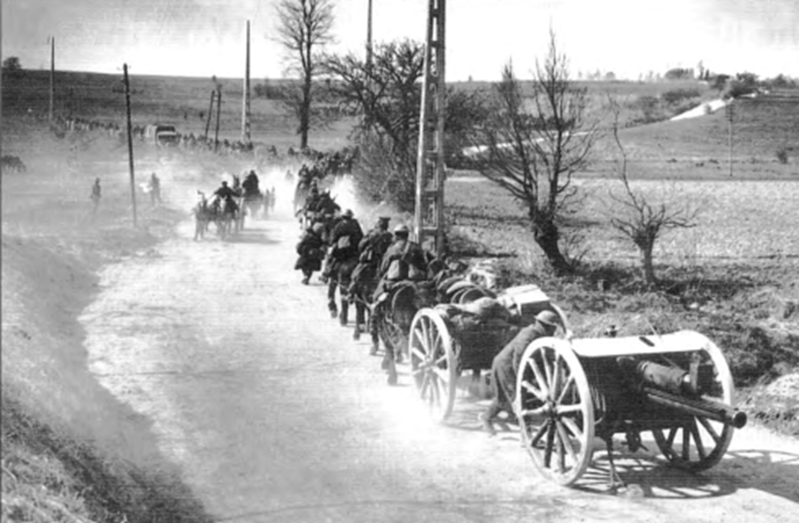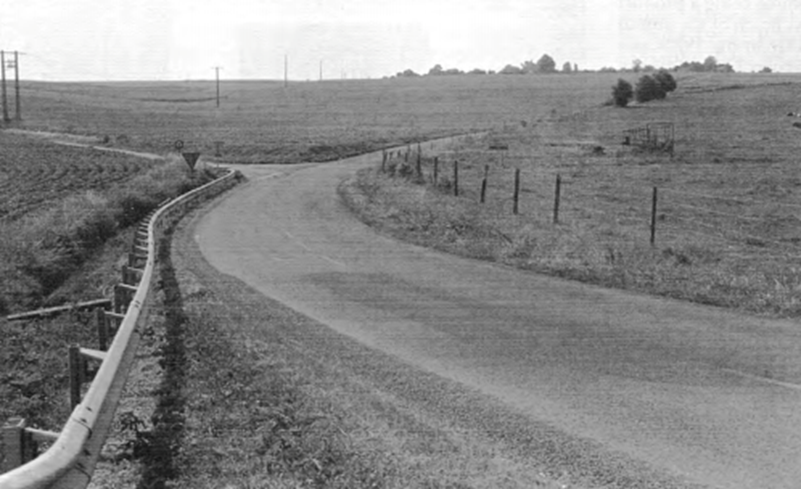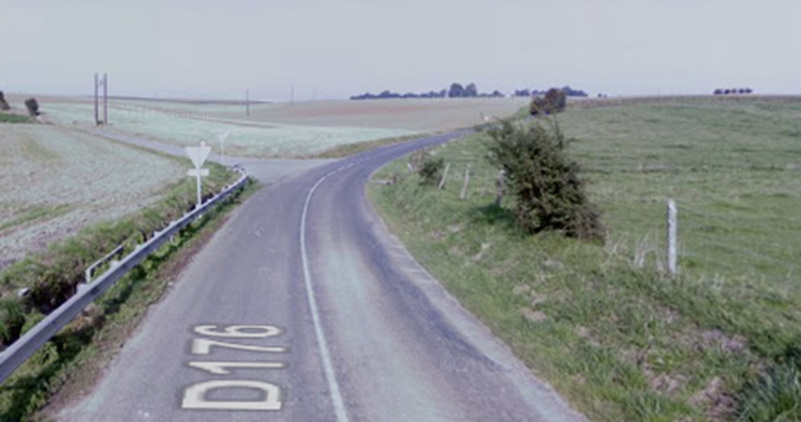The Camera Returns No.25 by Steve Wall and Bob Grundy
- Home
- World War I Articles
- The Camera Returns No.25 by Steve Wall and Bob Grundy
 |
|
A battery of 18-pounder guns of the Royal Field Artillery moving up towards Mailly-Maillet to meet the German advance, 26 March 1918 (IWM Q8631) [https://www.iwm.org.uk/collections/item/object/205216157] |
 |
|
The view in 1984 outside Maily-Maillet looking towards Forceville. © Steve Wall and Bob Grundy |
 |
|
Google Street View. D176 France Image Capture September 2008. © Google 2020. |
In Stand To! No. 31 the Camera Returns team visited Mailly-Maillet to compare a photograph of Whippet tanks entering the village on 26 March 1918, just after the start of the German Spring offensive, with our own recent photograph.
On the same day and at the same road junction, and almost certainly taken by the same anonymous photographer, photograph IWM Q8631 shows an 18- pounder battery moving towards the village of Forceville. We discovered that the photographer was standing on the west side of the road junction just south west of Mailly-Maillet, between the D919 and the D196 road to Buissart, a small hamlet which can just be seen through the trees on the horizon on the right hand side of both photographs. The battery is in fact diverting from the D196 onto an unclassified lane leading to the village of Forceville.
Our friends at the Museum of Artillery at Woolwich confirmed that the guns are Mark II 18-pounders complete with ammunition limbers. The 18-pounder was probably the most widespread British Artillery piece, and it appeared in several versions throughout the war, with ranges increasing from 7,000 yards for the Mark I to 9,500 yards for the Mark V. In the IWM photograph a soldier is trying either to hitch a lift on the gun in the foreground, or to jump off, either way a hazardous operation. The photographer also moved forward fifty yards and took another view of this battery which appears in War Illustrated Album DeLuxe, vol. IX, p.2947, but no clue is given there as to the location.
One last point of interest is that the official caption for this photograph is '18-pounder battery moving towards Mailly-Maillet.' This is quite obviously wrong as the battery is moving away from the village. We feel that the only possible reason for this error is a propaganda one. 'Moving towards' sounds much more positive than 'moving away from ', which could easily be misconstrued as a retreat, which in this case it probably was!
[This item first appeared in Stand To! No.43 April 1985. Members of The Western Front Association receive six magazine a year, three copies of Stand To! and two our our in-house magazine Bulletin].





